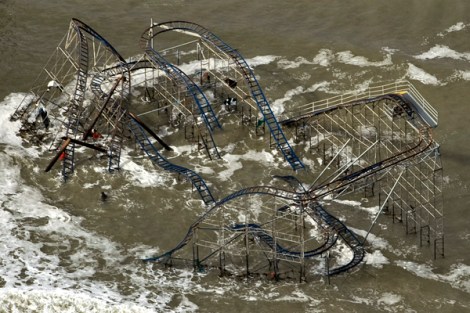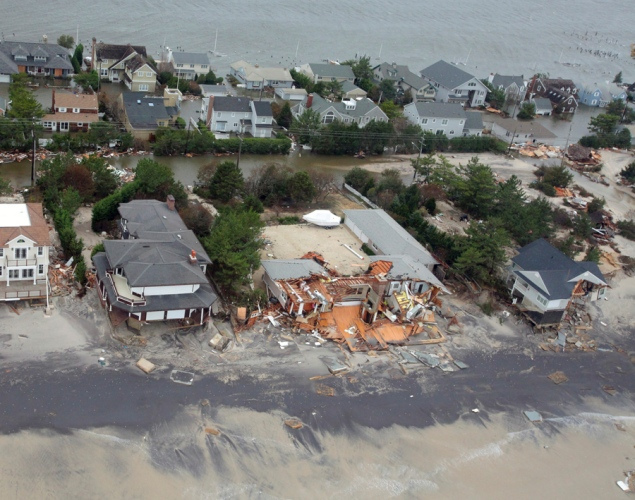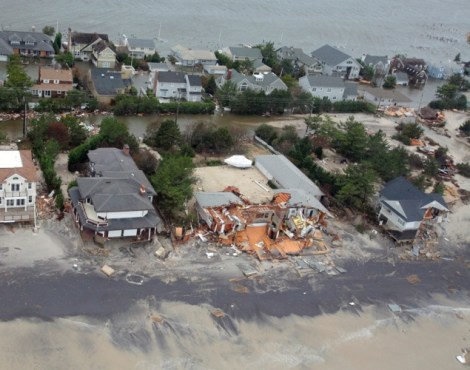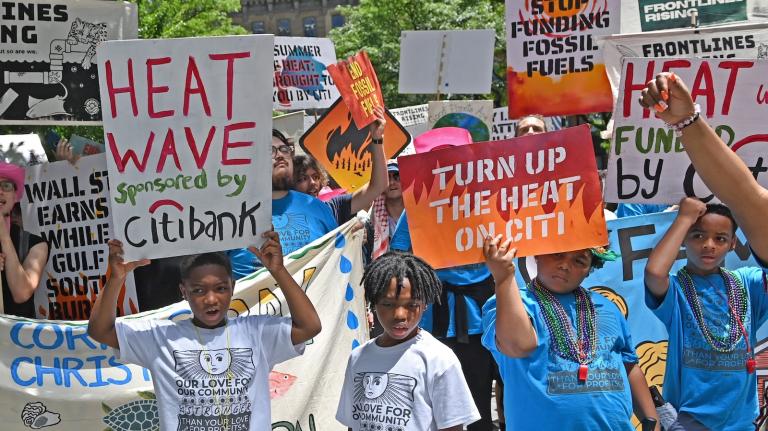Along the Eastern seaboard, Sandy devastated the rich and poor alike. But they’ve not been equally equipped to deal with that devastation.
In economically stratified New York City, some had the luxury of making sure their loved ones were comfortable and their homes as protected as possible, while others had to keep on earning a much-needed paycheck despite the rising waters. From David Rohde in The Atlantic:
Divides between the rich and the poor are nothing new in New York, but the storm brought them vividly to the surface. There were residents like me who could invest all of their time and energy into protecting their families. And there were New Yorkers who could not.
Those with a car could flee. Those with wealth could move into a hotel. Those with steady jobs could decline to come into work. But the city’s cooks, doormen, maintenance men, taxi drivers and maids left their loved ones at home.
New census data shows that the city is the most economically divided it has been in a decade, according to the New York Times. As has occurred across the country, the rich are getting richer and the poor are getting poorer. Twenty-one percent of the city is in poverty, and the median household income decreased by $821 annually. Per the Times: “Median income for the lowest fifth was $8,844, down $463 from 2010. For the highest, it was $223,285, up $1,919.”
Today, Democracy Now! devoted a segment to some of those most affected by Sandy: low-income residents of New York’s Lower East Side, including workers who’ve lost days of pay and bedbound seniors trapped in public housing.
[protected-iframe id=”15c6af752a60d8c4c1cf54f072c82179-5104299-30178935″ info=”http://www.democracynow.org/embed/story/2012/11/1/without_power_and_aid_low_income” width=”400″ height=”225″]
Democracy Now! heard from one man filling a water bottle at a fire hydrant:
You see the stores? There’s no bread. There’s nothing in there. Only thing in there is cigarettes. And you can’t live with cigarettes. We need water. We need food.
Has he seen FEMA, the reporter asks?
I haven’t seen anything, nothing at all, nobody offering anything. Yesterday somebody gave me a big gallon of water—I mean, you know, big empty gallon. And they just told me, “When you’re done with it, just return it back,” which is nice, that person did for us. But I haven’t seen anyone do anything for us out here.
“Poor people can’t buy generators,” journalist Michael Tracey told me, speaking from his car in flooded New Jersey. “They can’t get hotel rooms.”
I talked with Tracey about what he’s seen this week in his home state. New Jersey may be running out of gas — but that’s only relevant for the people who have cars and can get to the gas station.
“Where I’ve been is a working-class area mostly, at least the people who live there year-round. The less expensive beach houses, the older ones, are what I’ve seen are the most devastated. But there are also super-expensive homes owned by millionaires who live in other cities, and some of those have been destroyed.”
Northeast beachfront property is some of the most desirable, but only in the summers. During the rest of the year, the infamous Jersey shore is home to middle-class towns and cities that are set up in many ways to cater to the rich who visit them for just a few months out of the year.

Reuters / Steve Nesius The devastated Seaside amusement park that caters to summer shore visitors.
Tracey said many people in the communities he’s visited are still unaccounted for: “We’re going to be hearing about more deaths on Election Day.”
And he emphasized the electoral losses that could hit on Nov. 6: “New Jersey is a Democratic state, but if there’s a disproportionate number of urban, low-income people affected, the state could go to Romney. That could swing the election. I feel like people are not reckoning with this possibility and it’s going to be a huge mess after the election.”
Most of our talk about Sandy affecting the election has centered around climate change. Will the floodwaters bring new political perspective? Will Americans be more motivated to vote for a candidate who is willing to at least acknowledge the threat of climate change?
“It’s global warming, stupid” is cold comfort for those who are still under water, figuratively if not literally — people without generators, without hotel rooms, and without paychecks that could be used to buy unspoiled food. “It’s global warming, poors.” And you can’t vote your way out of this one.





